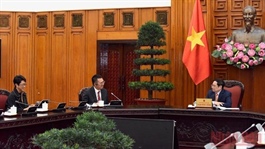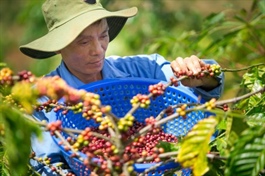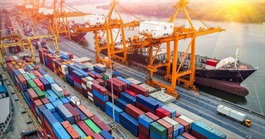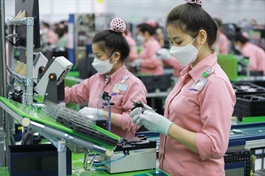Highlighting progression in export trade remedy policies
Highlighting progression in export trade remedy policies
Global trade is growing, and so are trade remedies. Trade protection is a policy tool allowed by the World Trade Organization to be used by member countries to protect domestic industries against unfair competition of imported goods, such as dumping, subsidised exports, and sharp increases in the number of imported goods, affecting the domestic industry.
Vietnam, like other exporting economies, can easily become the subject of trade remedies. In 2021, Vietnam’s export scale continued to grow, with the total export turnover estimated at $336 billion, up 19 per cent over the previous year. The country has 35 export products reaching a turnover of over $1 billion each, accounting for 93.8 per cent of the total export turnover. Among these, eight products reached more than $10 billion, accounting for 69.7 per cent.
However, Vietnam’s exports are increasingly facing cases of investigation and application of trade remedy measures by foreign countries. By the end of 2021, Vietnam’s goods had been the subject of 209 investigations. For instance, our steel export turnover reached over $12.7 billion, with goods travelling to more than 20 countries and regions around the world, an increase of more than 100 per cent over the same period last year.
Up to now, Vietnamese steel is subject to 66 foreign trade remedy investigations. The products are very diverse, including items such as galvanised, cold-rolled, and stainless steel, as well as steel pipes and belts, among others. Most of Vietnam’s major export markets, such as the United States, the European Union, and Australia, have all had investigations running that involved steel from Vietnam.
After signing and implementing many free trade agreements, Vietnamese goods could increase exports by taking advantage of tariff preferences and other preferential conditions. However, on the flip side, more cases of trade remedies are to be expected due to the increasingly complex nature of the agreements.
Against this background, assisting enterprises in handling foreign trade remedy investigations has been institutionalised in the Law on Foreign Trade Management and concretised in several projects approved by the prime minister.
Implementing these measures, the Ministry of Industry and Trade (MoIT) has set out a policy to respond and effectively handle foreign trade remedy cases for exported goods, including an early warning system for the manufacturing and export industries implemented in coordination with related ministries and branches.
The system is meant to periodically post warnings for goods at risk of investigations, combat the evasion of trade remedies, and offer early access to information for businesses, as well as help them better understand the underlying principles and processes.
In particular, the fight against origin fraud and evasion of trade remedies has received more attention from the government.
The MoIT has also regularly provided a warning list of export products that are at risk of being subject to trade remedy investigations, such as for evasion of trade remedies and origin fraud.
Since the first time the MoIT announced the warning list in 2019, there have been seven products on the warning list that were investigated by foreign countries, namely plywood, hardwood, foam padding, car tires, copper pipes, honey, anti-corrosion steel, and ceramic tiles.
Through the warning work, the authorities promptly prevented many cases of incorrect origin declaration and took appropriate handling measures. The MoIT also coordinated with industry associations to organise many seminars to disseminate regulations on origin and other trade remedies to enterprises.
In addition to the efforts of the government and the MoIT, the effective handling of foreign trade remedy investigations for Vietnamese exports requires the active participation of the business community.
To minimise the negative impacts of trade remedies, manufacturing and exporting industries and businesses need to develop export strategies in the direction of diversifying markets and avoiding oversupplying one market. Meanwhile, they should compete by quality and limit competition by price, as well as diversify sources of raw materials and avoid dependence on one market.
It is also advisable to ensure that the added value meets the criteria of origin of the importing country, with businesses considering fair trade risks when formulating their production and business strategies.
For this, companies need to be equipped with basic knowledge on trade protection laws and well organise their accounting books scientifically and reasonably, in addition to storing all documents and proofs, so that the origin for each shipment can be determined and traced at the request of the authorities.
Further, companies should prepare resources to deal with risks of trade lawsuits and monitor the warning system of the MoIT while exporting to other countries, as well as strictly comply with regulations on the certification of origin and fully cooperate with investigating agencies and the MoIT in the process of handling eventual cases.


























